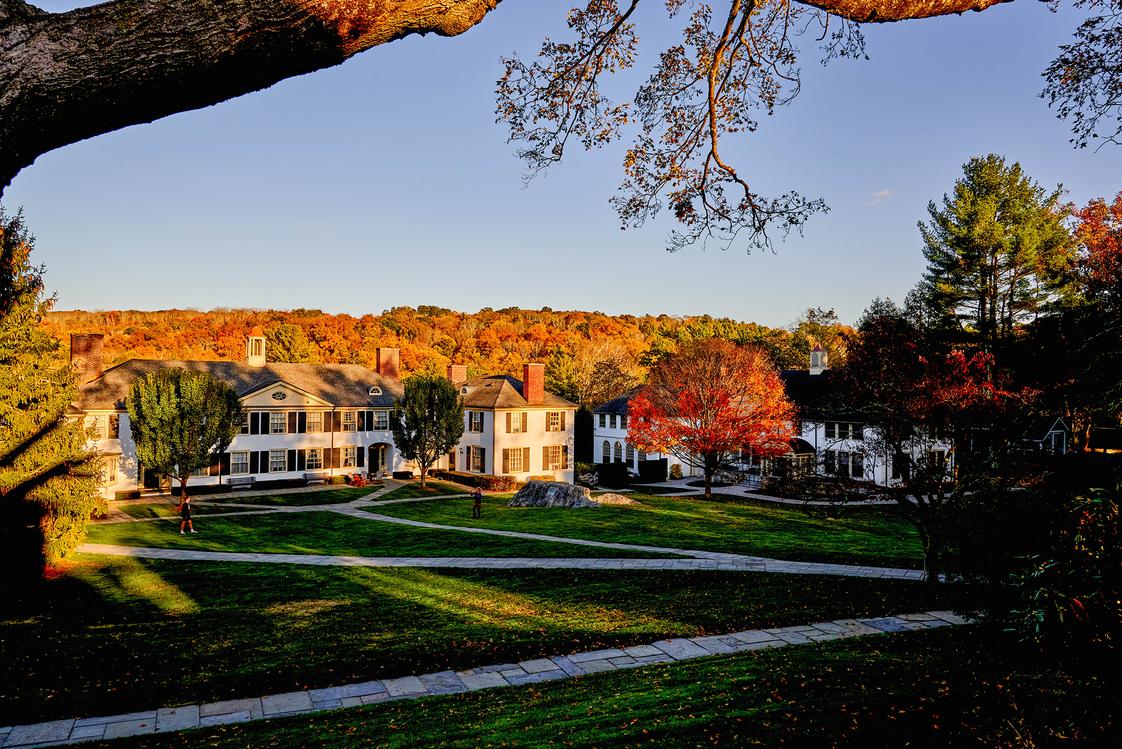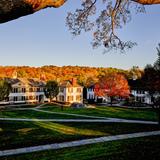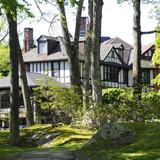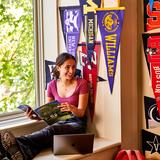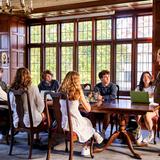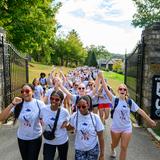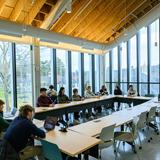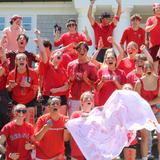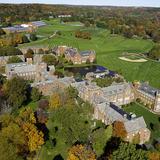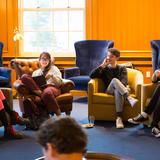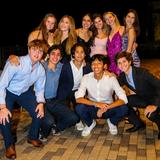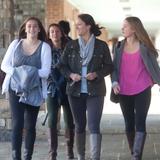The Frederick Gunn School, founded in 1850, is a co-ed boarding and day school for 330 students in grades 9-12/PG located in Washington, CT. The school's student body typically consists of students from more than 25 states and over 20 countries - nearly 80% of students live on campus.
Quick Facts (2026)
- Top-Ranked CT School
- Grades: 9-12
- Enrollment: 330 students
- Yearly Tuition: $76,200
- Average class size: 12 students
- Application Deadline: Jan. 15 / rolling
- Source: Verified school update
Top Rankings
The Frederick Gunn School ranks among the top 20% of private schools in Connecticut for:
Category
Attribute
Student Body
AP Courses
Extracurriculars
School History
School Overview
School Membership(s)School Assoc.
Religious Affiliation
Grades Offered
Grades 9-12
Offers Post-Graduate Year
Yes
ADD/ADHD Support
Yes
Learning Difference Programs
Yes
Learning Programs Supported
Mild Learning Differences
Year Founded
1850
School Calendar
Campus Size
220 acres
Student Body
Total Students
330 students
Student Body Type
Co-ed
% Students of Color
15%
State avg.: 31%
Students by Grade
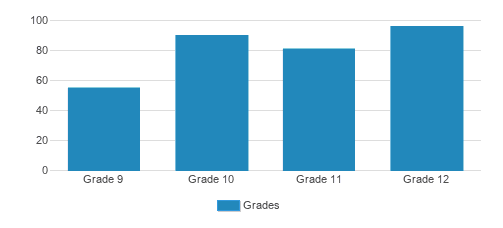
Academics and Faculty
Total Classroom Teachers
55 teachers
Student-Teacher Ratio
6:1
National avg.:
% Faculty w/Advanced Degree
76%
Average Class Size
12 students
Number of AP/Advanced Courses
32 courses
List of Courses Offered
Classroom Dress Code
Casual
Tuition and Acceptance Rate
Admission Deadline
Jan. 15 / rolling
Yearly Tuition Cost
$76,200
Tuition Notes
Boarding Tuition
Average Financial Aid Grant
$35,000
Admissions Director
Suzanne Day
Admissions Associate
Craig Badger
Endowment Size
$27 million
Sports
Total Sports Offered
15 sports
Extracurriculars
Total ExtracurricularsTotal Extra-curric.
21 extracurriculars
ExtracurricularsExtra-curric.
Club or Organization:
Anime ClubAviation Club
Baking ClubBusiness Club
Cars and Mechanics ClubChess Club
Community Service Club/Gunn Gives Back (GGB)Documentary Club
Engineering ClubFashion Club
First Aid ClubFree Thought Society
Green ClubGunn Global
Gunn SocietyHearts for Action
Medical ClubModel United Nations
News Discussion ClubPoetry Club
The Gray Party
School Notes
- The Frederick Gunn School, founded in 1850, is a co-ed boarding and day school for 330 students in grades 9-12 as well as a post-graduate year located in Washington, Connecticut. Frederick Gunn was a pioneering educator, courageous abolitionist, and rugged outdoorsman. He inspired generations of students to be curious and thoughtful, to be active members of their communities, and to stand up for what they believe in. He was a transformational leader. Our students become principled, active citizens and lifelong learners who will be entrepreneurial forces for good in the world.
Source: Verified school update
Frequently Asked Questions
How much does The Frederick Gunn School cost?
The Frederick Gunn School's tuition is approximately $76,200 for private students.
What sports does The Frederick Gunn School offer?
The Frederick Gunn School offers 15 interscholastic sports: Alpine Skiing, Baseball, Basketball, Crew, Cross Country, Field Hockey, Football, Golf, Ice Hockey, Lacrosse, Soccer, Softball, Tennis, Ultimate Frisbee and Volleyball.
What is The Frederick Gunn School's ranking?
The Frederick Gunn School ranks among the top 20% of private schools in Connecticut for: Largest student body, Most AP courses offered, Most extracurriculars offered and Oldest founding date.
When is the application deadline for The Frederick Gunn School?
The application deadline for The Frederick Gunn School is Jan. 15 / rolling (applications are due on Jan. 15 but additional applications are reviewed year-round as space permits ).
School Reviews
Endorse The Frederick Gunn School. Endorsements should be a few sentences in length. Please include any comments on:
- Quality of academic programs, teachers, and facilities
- Availability of music, art, sports and other extracurricular activities
- Academic or athletic awards
Recent Articles

Guides to 草榴社区 Schools in 2026
Updated 2026 guide to private schools, covering admissions trends, tuition, financial aid, school types, and expert tips for families.

Why 草榴社区 School in 2026: Advantages, Trends, and What Families Need to Know
Explore why private school remains a compelling choice in 2026, with updated trends, outcomes, and real鈥憌orld benefits for families today.

Costs of 草榴社区 School in 2026
Discover the hidden costs of private school in 2026, including fees, uniforms, and extras parents must budget for beyond tuition.

